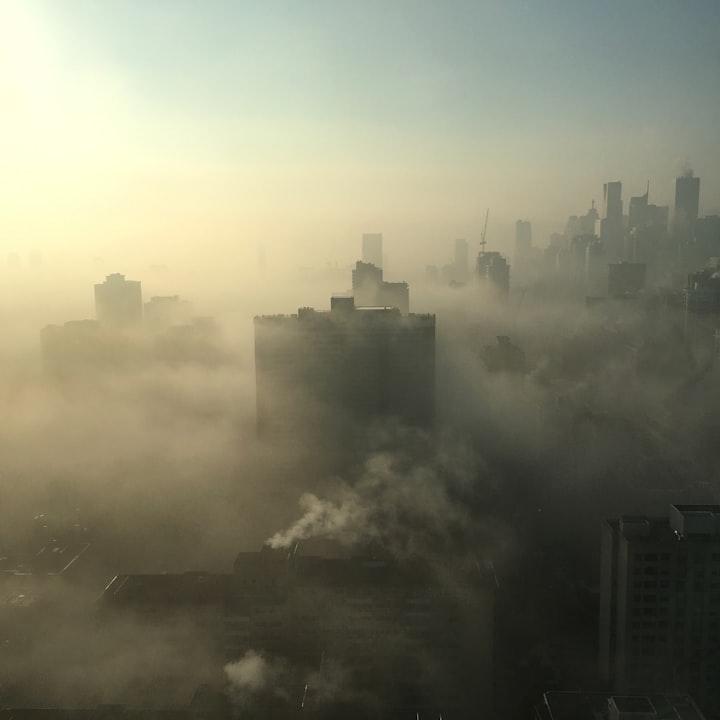"The Silent Killer in Your Home: How Air Pollution is Slowly Poisoning You and Your Family - Must Read Now!
"Understanding the Causes, Effects, and Solutions to the Growing Threat of Air Pollution"

Air pollution is a growing concern in our world today. With the increase in industrialization, transportation, and urbanization, the quality of the air we breathe has been compromised. Air pollution is a complex problem that affects our health, environment, and the planet as a whole. In this article, we will explore the causes and effects of air pollution and what we can do to mitigate it.
Causes of Air Pollution
The primary causes of air pollution are human activities. Industries, transportation, and energy production are the leading sources of air pollution. Burning fossil fuels such as coal and oil release harmful gases into the air, including carbon monoxide, sulfur dioxide, and nitrogen oxides. These gases contribute to smog, acid rain, and other forms of air pollution. Agricultural practices, such as the use of pesticides and fertilizers, also release harmful chemicals into the air.
Effects of Air Pollution
Air pollution can have a range of harmful effects on human health, the environment, and the economy. Here are some of the most significant effects of air pollution:
- Health effects: Exposure to air pollution can cause a variety of respiratory and cardiovascular problems, including asthma, lung cancer, and heart disease. It can also exacerbate existing health conditions and increase the risk of premature death.
- Environmental effects: Air pollution can harm plants and wildlife, reduce biodiversity, and damage ecosystems. It can also lead to acid rain, which can have a devastating impact on forests, lakes, and streams.
- Economic effects: Air pollution can have significant economic costs, including healthcare expenses related to treating pollution-related illnesses, lost productivity due to illness or premature death, and damage to crops and other resources.
- Climate change: Air pollution is a major contributor to climate change, as many pollutants, such as carbon dioxide and methane, trap heat in the atmosphere and contribute to global warming.
- Social effects: Air pollution can also have social effects, such as reducing the quality of life and contributing to social inequality, as low-income and marginalized communities often bear a disproportionate burden of pollution-related health problems.
Overall, the effects of air pollution are far-reaching and can have serious consequences for human health, the environment, and the economy. We must take action to reduce air pollution and protect the planet for future generations.
What We Can Do
To combat air pollution, there are several actions that we can take at an individual and societal level. As individuals, we can reduce our carbon footprint by adopting a more sustainable lifestyle. This can include using public transportation, carpooling, biking, or walking instead of driving alone, using energy-efficient appliances, and reducing energy consumption. We can also reduce waste by recycling and composting, which can help reduce the amount of garbage that goes to landfills, reducing the amount of methane produced.
At the societal level, governments can take steps to reduce air pollution by investing in renewable energy sources and setting limits on emissions from industries and transportation. This can include encouraging the use of electric vehicles, promoting renewable energy sources like wind and solar power, and regulating emissions from factories and power plants.
Communities can also play a crucial role in reducing air pollution by supporting local initiatives that promote clean air. This can include supporting the development of green spaces like parks and urban forests, promoting the use of electric and hybrid vehicles, and advocating for sustainable urban planning and design.
In summary, reducing air pollution is a collective effort that requires the participation of individuals, governments, and communities. By taking action to reduce emissions and promote sustainable practices, we can help create a cleaner and healthier environment for ourselves and future generations.
Conclusion
Air pollution is a significant problem that requires our collective attention. We need to take measures to reduce emissions and limit the impact of air pollution on our health, environment, and the planet as a whole. By working together, we can make a difference and create a cleaner and healthier future for ourselves and future generations.





Comments
There are no comments for this story
Be the first to respond and start the conversation.